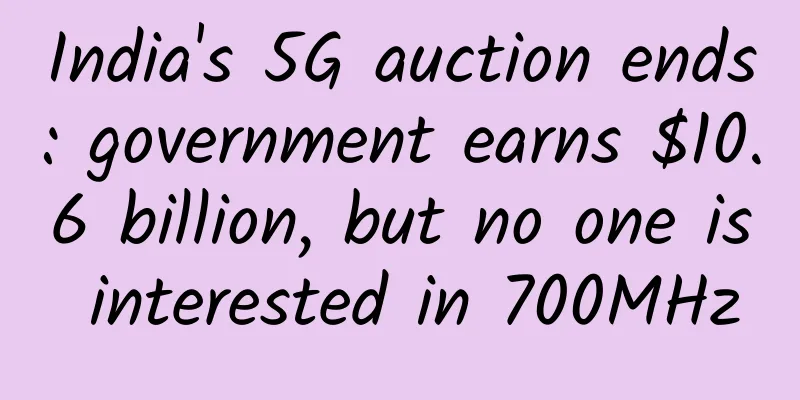Don't blame the operator, your home Internet speed may be stolen by it

|
"What's your Wi-Fi password?" When you are out and about, I believe many people have become accustomed to searching for free Wi-Fi hotspots wherever they go. Whether it is a restaurant, a hotel or a friend's house, before you even sit down, the first thing you "ask" is the Wi-Fi password. Recently, in order to help his friends who often come to his home to play PUBG no longer suffer from the slow speed, reader Xu Hao decided to replace the old router he had used for many years. So he picked out a smart wireless router at a nearby digital city that costs only 79 yuan and claims to be able to allocate network speed on demand. "After using it for several days, the speed has not gotten faster, but even slower." He told Dongdong Notes that his home is connected to a 100M fiber broadband, and the theoretical downstream speed is about 12MB/s. But after installing this new smart wireless router, sometimes he can't even open a web page, let alone "PlayerUnknown's Battlegrounds". Xu Hao's first reaction was that the network was hacked by a "freeloader". However, such a smart wireless router, plus the "hardcore" password he set, should not be so easily cracked by others. So, how do we explain the slow internet speed? The fake router has a hidden "backdoor", and you can access the Internet as long as you follow it? "It's true that cheap products are not good." No matter how he logged into the wireless router management backend, Xu Hao did not find any users who were using the wireless network for free. However, after resetting the wireless router several times, he was surprised to find some Wi-Fi hotspots with unfamiliar names. Sometimes there is one, sometimes there are multiple, most of them are named with ChinaNet+suffix or CMCC+suffix. He told Dongdong Notes that these hotspots had never appeared before, but since he bought this smart wireless router, similarly named unlimited hotspots have often appeared in the wireless connection list of mobile phones and computers. "I'm afraid it's coming from this (wireless) router." Xu Hao said that in order to confirm this idea, he and his friend repeatedly reset and powered off the router. It turned out that as long as the power was turned off, these hot spots with strange names would disappear. But as soon as the power was turned on, these hot spots would reappear. "It's just that the suffix is different, usually composed of four letters." He said. In addition, they also found that these wireless hotspots that seemed to be parasitic on this smart wireless router could be connected without a password. So, at the risk of being "phished" by a wireless advertising machine, he chose one of the hotspots and connected to it. After the connection was established, a browser page popped up on the phone, which completely stunned him. The page prompted that as long as he filled in his mobile phone number and received a verification code, he could access the Internet. If he did not want to verify his mobile phone, he could also get an hour of Internet access by following a public account recommended on the page. "It also prompts that if you unsubscribe to the public account, the network connection will be disconnected." Puzzled, Xu Hao quickly found the instruction manual in the wireless router box. The simple description did not mention any related settings, nor did it mention any related prompts to close these unfamiliar hotspots. He took several friends' mobile phones and tried to follow the public account. After getting an hour of Internet access, he desperately downloaded high-definition video resources. It turned out that the Internet speed of the normally set Wi-Fi hotspot was indeed very slow. "And I used the public account's connection method to connect more than a dozen mobile phones, and there was still no problem, I could surf the Internet and download." Xu Hao suddenly realized that this low-priced smart wireless router should have another system built in to transmit wireless WIFI hotspots for promotion. As long as the "freeloaders" follow the public account for promotion, they can easily squeeze his fiber optic Internet speed. What made him even more angry was that he had clearly paid for the fiber-optic broadband and the wireless router with his own money, so why should he help a public account he didn't know to attract fans and collect users' phone numbers and other information? Many people have come across this type of wireless hotspot that requires following a public account to access the Internet. However, this function is usually only available on commercial wireless routers in public places. When did it get moved to home wireless routers? Moreover, such dirty tricks are used to help advertisers attract fans and traffic without the users' knowledge. So, are the merchants selling routers aware of this kind of bonus "function"? Counterfeit routers are being promoted in secret, and low-priced routers have become a tool for the "gray industry" "He said he didn't know what the official account was." Xu Hao took the "smart" wireless router to the seller in a digital mall in Huaqiangbei, wanting to ask for an explanation. However, the owner said innocently that he didn't understand technology, so he didn't know what the trick he was talking about was. In addition, the boss also said that if the router is broken, or there are any problems with it, or even if you don't want it anymore, as long as the packaging is still there, you can exchange or return it here. Even if the packaging is lost, you can still enjoy a one-year warranty. He is a conscientious seller. "I thought it was an isolated case, but after I replaced it, those unfamiliar hotspots still appeared." Xu Hao, who knew that he had suffered losses by trying to save a little, told Dongdong Notes that although the seller was near his home, exchanging goods and defending his rights were very time-consuming, so he had to admit defeat and bought a new brand wireless router online. Based on the clues he provided, Dongdong Notes also inquired about several stalls selling wireless routers in Huaqiangbei on the grounds of promotion needs. Strangely, the store owners who pretended to be "novice" in front of Xu Hao suddenly became shrewd. When he heard about promoting a public account, he and several other stalls said they could recommend the corresponding operating agencies. Among the several recommended marketing agencies, Dongdong Notes contacted the promotion manager of a company called "Yongqian Network". "We can embed promotions in home wireless routers to help businesses and self-media public accounts attract fans." He said that it is not difficult to set up similar promotion technology in home wireless routers. Many small manufacturers are doing it, but their prices are much lower than other institutions on the market. "Payment is based on results, 0.5 to 0.8 yuan per follow, and there is a chance of being unfollowed." If the area is restricted to follow users, the price will be even higher. He even showed Dongdong Notes a lot of successful cases of cooperation between Shenzhen's local self-media and institutions to demonstrate its strength. "Small manufacturers sell their routers at factory prices or at a loss, so they can grab the market. The vast majority of their income comes from the share of our system's marketing and promotion." According to the person in charge, basically those cheap, unknown knockoff wireless routers are mostly pre-installed with their system that has the function of free Internet access by following public accounts. And some users who use mobile phone verification codes to access the Internet have their numbers recorded by the agency, which can be used for secondary sales and promotion. When asked whether this would have a negative impact on the public accounts being promoted, he said that tens of thousands of public accounts are promoted through their organization every day, and they have not heard of any negative complaints so far. "Some brands of wireless routers have also started to do this kind of promotion, but they just use the name of "Friends Wi-Fi" as a selling point to promote public accounts and advertising content," he said. In order to seize the demand of more and more mobile phone users for Wi-Fi hotspots to access the Internet wherever they go, these so-called promotion agencies use other people's private wireless routers to "deploy" a large number of free unlimited hotspots, and act as "advertising machines" to attract traffic to many public accounts for a fee. Little do they know that this has violated the privacy rights of users to a certain extent. Its behavior is no different from the method used by some mobile phone vendors to pre-install promotional apps without the user's consent. So, is it true that, as the person in charge said, some router brands are also playing tricks to promote Internet access? Big brands also offer free Internet access? Or is it due to poor logic design? "It was a really unexpected promotion method." Hu Yong's company does not have many employees, but in order to facilitate employees to log in and use the Wi-Fi hotspot on a daily basis and to ensure the security of the company's network, he arranged for his colleagues to buy a certain brand of 3C model wireless router that claimed to have the "Friend Wi-Fi" function. The so-called "Friend Wi-Fi" means that if you are friends with the administrator, you can log in and connect to the network directly. If you are not the administrator's friend, you can also log in to the Internet by adding a friend through the prompt. "We used it peacefully for the past six months, until one day, a customer came to the company and found that there was something wrong with our Wi-Fi connection page." Hu Yong told Dongdong Notes that the customer found that in order to log in to the company's Wi-Fi hotspot, in addition to being a friend of the administrator, you can also click the "Free Internet Access" button to enter the public account's forced follow-up page, and obtain Internet access time after following. You don't even need to follow the official account. You can get a three-minute trial by clicking on the promoted article on the login page. And the Internet access is all from the broadband connected to his company. He was angry and quickly asked his colleagues who knew technology to check what was going on. "It's not mentioned in the manual, but many people complained about it online." Hu Yong said that the manual didn't mention the free Internet access function. He thought the seller had tampered with it, but after flashing the product firmware provided on the official website twice, he still found that this function existed. Moreover, on the official forum of the product, some users also criticized that after the firmware upgrade, the "Friend Wi-Fi" function suddenly appeared to recommend free Internet access. Although some forum users said that this function would bring a certain share of promotional revenue (rewards) to the administrator account, users should also be given clear management authority to allow them to decide whether to enable the free Internet access function. "I hope the official can give an explanation. Before the firmware is perfected, I dare not use the 'Friend Wi-Fi' function." Hu Yong said that the manufacturer's approach may not be to earn a little promotion fee, but to encourage more users to use its products and this function through promotion rewards. However, it should not be bundled with the function of free Internet access at the expense of the user's self-management authority. This is obviously a mistake made by the product manager in design logic. "What's more annoying is that the button for adding WeChat friends is always wrong, while the button for free Internet access is always valid." Hu Yong added. Wireless routers are the most common Internet access devices in users' lives, but they have also been used in many ways by knockoff and brand manufacturers. However, whether it is purely for the purpose of obtaining promotional benefits or encouraging users to purchase and use them, it is inappropriate to bundle and implant similar public account promotion functions without informing users. In this way, manufacturers will not be able to encourage more users to use their products through profit sharing and reward, but will disgust many loyal users. Users should not blindly buy similar knockoff products to save money, so as to avoid unnecessary trouble and losses. |
<<: How much do you know about the unlimited traffic trap?
Recommend
The new year is here! Ruijie Wi-Fi 7 high-density AP RG-AP9520-RDX officially debuts with "dynamic beamforming antenna"!
At the beginning of the new year, Ruijie Networks...
CommScope launches new access point portfolio to accelerate enterprise-class Wi-Fi 6 adoption
Shanghai, China, June 9, 2020 – CommScope recentl...
Simple analysis of the three important requirements for remote network connections
The continuous emergence and upgrading of online ...
Edge computing and 5G drive post-pandemic economic recovery
[[429757]] Will edge computing and 5G drive a pos...
CloudCone Easter Sale: Los Angeles KVM Annual Payment Starting at $12.95
CloudCone's Easter promotion started on the m...
The third anniversary of 5G license issuance: "Three-generation life" has brought prosperity
On June 6, 2022, my country's 5G commercial l...
Chen Jinqiao: China's 4G network sets a world record and its network quality is the best in the world
On December 23, at the annual APP awards ceremony...
Is the network model seven layers, five layers, or four layers?
When we are doing network development, we often h...
The 18th China Enterprise Annual Selection List for 2023 was announced: Huawei OptiXstar T602E Compact Industrial Optical Terminal won the 2023 Media Recommended Product Award
In November 2023 , the " China Enterprise &q...
Understand 3GPP 5G versions and the features of each version
While for years cellular technology has been prim...
CloudSilk launches German AS9929 line high-bandwidth VPS, 10% off annual payment starting from 216 yuan
CloudSilk has newly launched a VPS host connected...
TMThosting: Seattle high-security VPS with 20% off for monthly payment, 30% off for annual payment, China Unicom CUVIP line, Alipay support
It has been a while since I shared information ab...
Will cloud computing lead to the demise of large data centers?
I've heard this message repeatedly from publi...
Midea and HarmonyOS join forces to jointly develop the era of the Internet of Everything
[51CTO.com original article] On September 10, 202...









